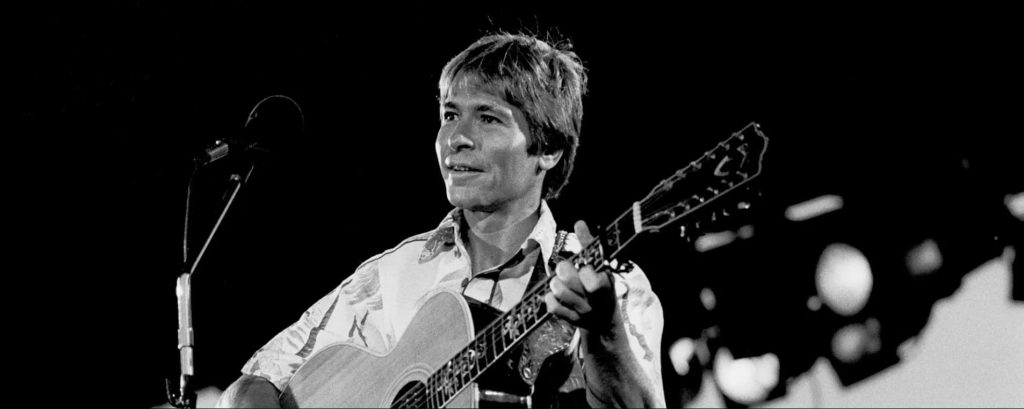
“Leaving on a Jet Plane” by John Denver: A Heartfelt Farewell That Never Fades
“Leaving on a Jet Plane” is more than just a song; it is a poignant expression of longing and separation that has resonated deeply with listeners for decades. Written by the legendary American singer-songwriter John Denver in 1966, the song captures the bittersweet emotions of departure with a simplicity and sincerity that has made it a timeless classic.
Originally penned during a layover at Washington National Airport, the song was born from a moment of reflection and personal introspection. At the time, John Denver was a relatively unknown 23-year-old musician, navigating the challenging landscape of the Los Angeles folk scene. The song, initially titled “Babe I Hate to Go,” was a deeply personal piece, evoking the imagery of early morning departures, packed bags by the door, and the quiet sorrow of leaving a loved one behind. Denver’s ability to convey these universal feelings of separation and loss in such a relatable way is part of what makes “Leaving on a Jet Plane” so enduring.
Denver first recorded the song on his debut demo, John Denver Sings, in 1966. He distributed copies of the demo as Christmas presents, never anticipating the profound impact the song would eventually have. It wasn’t until 1967, under the guidance of his producer Milt Okun, that the title was changed to “Leaving on a Jet Plane,” a name that better encapsulated the essence of the song’s narrative.
In 1969, as Peter, Paul and Mary’s version of the song climbed the charts, reaching number one on the Billboard Hot 100, Denver recorded “Leaving on a Jet Plane” for a second time, including it on his debut studio album, Rhymes & Reasons. Despite its significance and the song’s growing popularity, Denver’s single failed to chart, a fact that highlights the often unpredictable nature of the music industry.
However, John Denver didn’t give up on the song. He re-recorded it for the third and final time in 1973, for his Greatest Hits album. This version is perhaps the most widely recognized today, appearing on many of his compilation albums and cementing “Leaving on a Jet Plane” as one of Denver’s best-known songs.
Though the song is frequently associated with the Vietnam War era, where it was interpreted by some as a protest song about a soldier’s impending deployment, “Leaving on a Jet Plane” was not originally written with that context in mind. For Denver, it remained a deeply personal reflection on the pain of parting, something that he himself noted in a BBC Radio special. To him, the song didn’t evoke images of Boeing 707s or 747s, but rather the intimate, simple scenes of leaving—moments that many listeners could connect with on a personal level.
The beauty of “Leaving on a Jet Plane” lies in its timelessness. It continues to resonate with audiences, not only because of its melody and gentle acoustic arrangement, but because it taps into a universal experience—the heartache of saying goodbye. Whether it’s the nostalgia of a past era or the personal memories it stirs in each listener, the song remains a powerful testament to John Denver’s ability to capture the human condition in music.
Despite its humble beginnings and the challenges it faced on the charts, “Leaving on a Jet Plane” has secured its place in the pantheon of great American folk songs, a heartfelt farewell that continues to echo through the years.